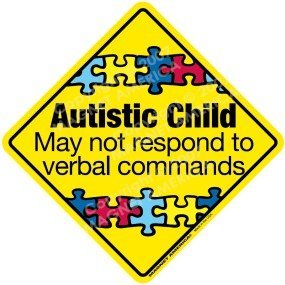Autism Treatment In Chennai

Autism Treatment In Chennai autism is a disorder that affects communication, social interactions and repetitive behaviors beginning in early childhood.
Children with autism might have problems talking with others. They do not make eye contact when you talk to them. They indulge in repetitive behavior such as rocking, making the same sound or repeat the same word or sentence over and over again, when agitated. They may use special behavior for communication such as flapping their arms to indicate happiness, or hurting themselves to to show dissatisfaction. Some people with autism never learn how to talk.
Researchers have identified a number of genes associated with the disorder. Studies of people with ASD have found irregularities in several regions of the brain. Other studies suggest that people with ASD have abnormal levels of serotonin or other neurotransmitters in the brain. These abnormalities suggest that ASD could result from the disruption of normal brain development early in fetal development caused by defects in genes that control brain growth and that regulate how brain cells communicate with each other, possibly due to the influence of environmental factors on gene function. While these findings are intriguing, they are preliminary and require further study. The theory that parental practices are responsible for ASD has long been disproved.
Therapies and behavioral interventions are designed to remedy specific symptoms and can bring about substantial improvement. The ideal treatment plan coordinates therapies and interventions that meet the specific needs of individual children. Most health care professionals agree that the earlier the intervention, the better.
Educational/behavioral interventions: Therapists use highly structured and intensive skill-oriented training sessions to help children develop social and language skills, such as Applied Behavioral Analysis. Family counseling for the parents and siblings of children with ASD often helps families cope with the particular challenges of living with a child with ASD.
Doctors may prescribe medications for treatment of specific ASD-related symptoms, such as anxiety, depression, or obsessive-compulsive disorder. Antipsychotic medications are used to treat severe behavioral problems. Seizures can be treated with one or more anticonvulsant drugs. Medication used to treat people with attention deficit disorder can be used effectively to help decrease impulsivity and hyperactivity.
As early as infancy, a baby with ASD may be unresponsive to people or focus intently on one item to the exclusion of others for long periods of time. A child with ASD may appear to develop normally and then withdraw and become indifferent to social engagement.
Children with ASD may fail to respond to their names and often avoid eye contact with other people. They have difficulty interpreting what others are thinking or feeling because they can’t understand social cues, such as tone of voice or facial expressions, and don’t watch other people’s faces for clues about appropriate behavior. They lack empathy.
Many children with ASD engage in repetitive movements such as rocking and twirling, or in self-abusive behavior such as biting or head-banging. They also tend to start speaking later than other children and may refer to themselves by name instead of “I” or “me.” Children with ASD don’t know how to play interactively with other children. Some speak in a sing-song voice about a narrow range of favorite topics, with little regard for the interests of the person to whom they are speaking.
